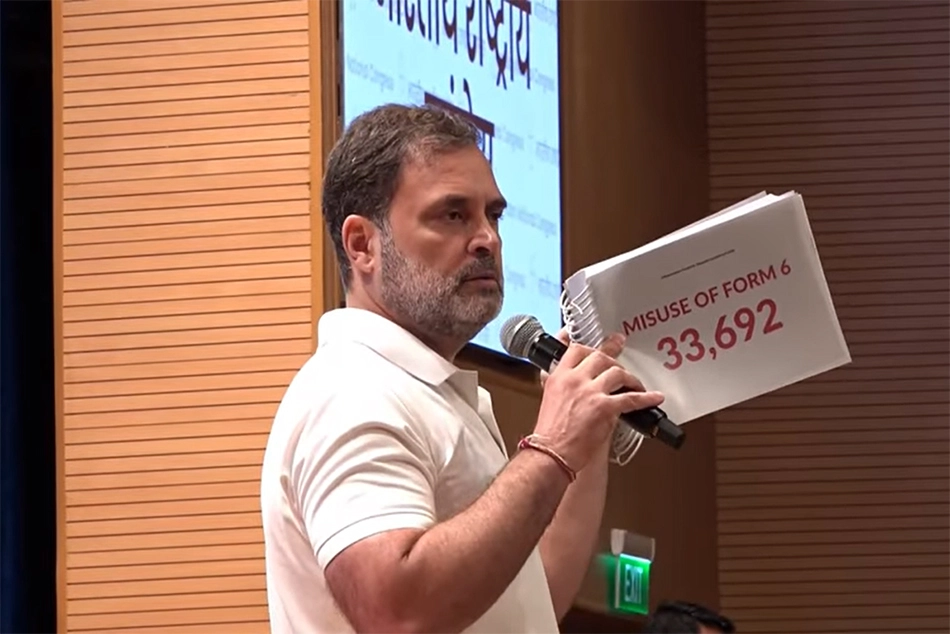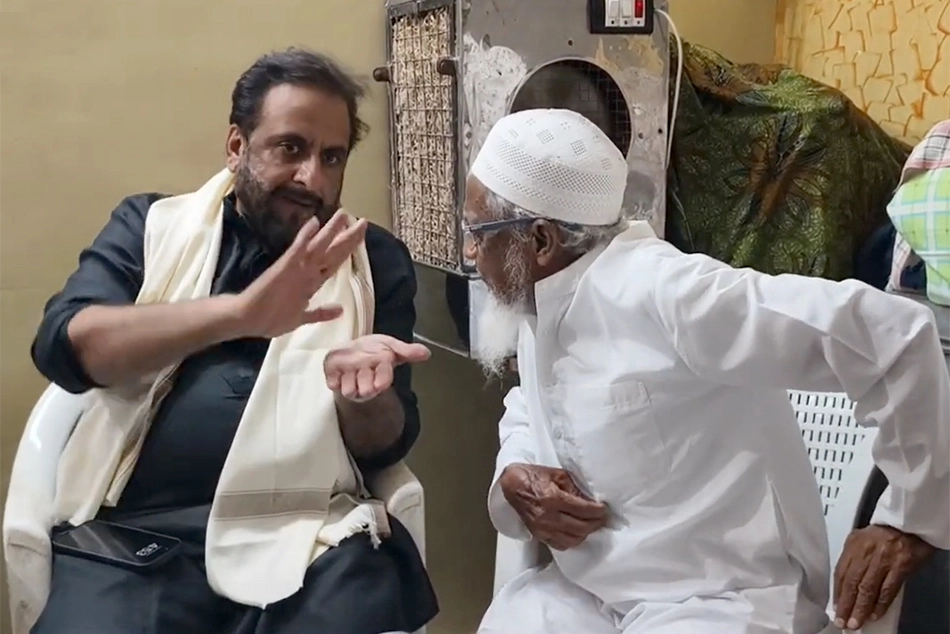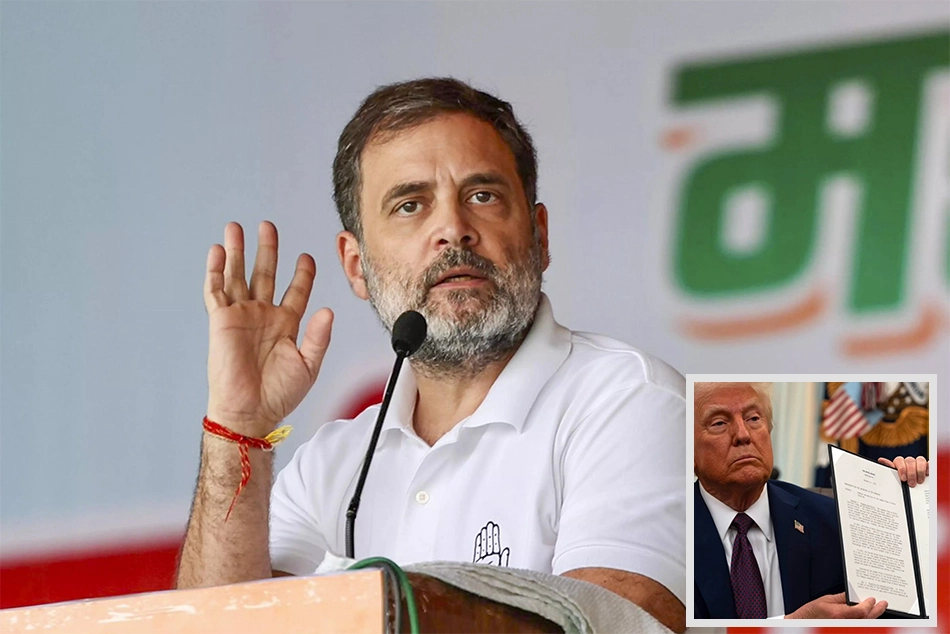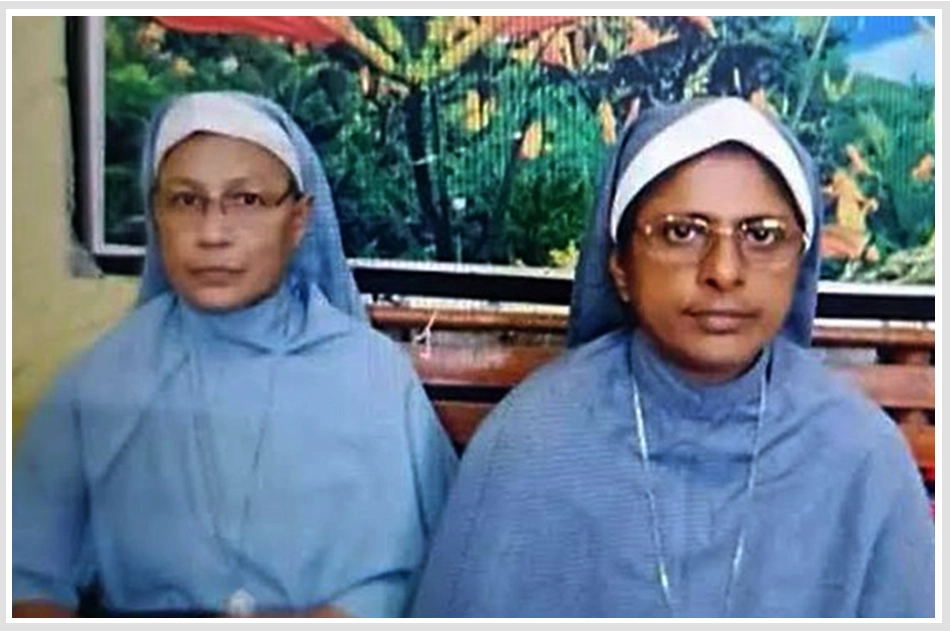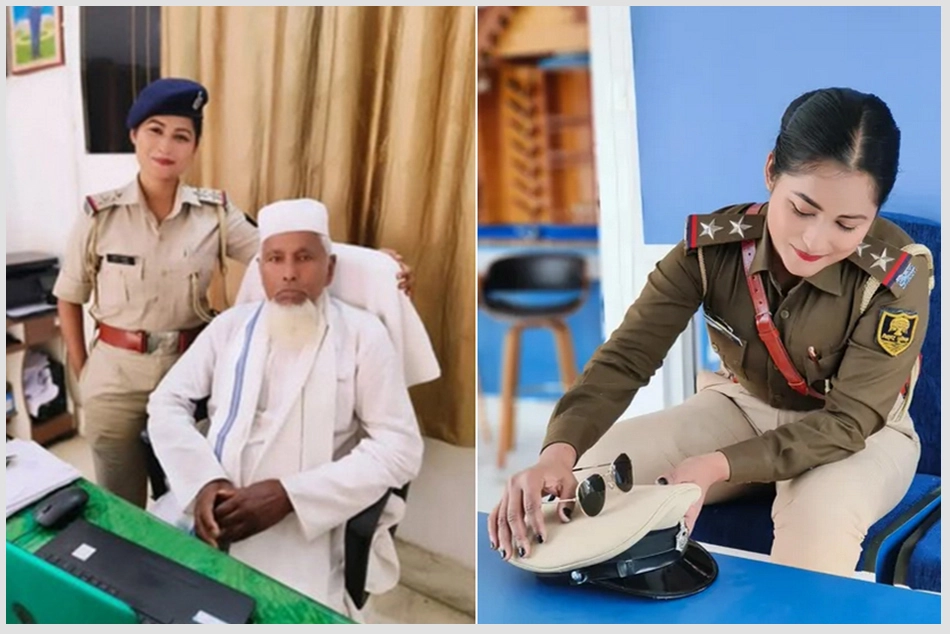
#VoteChori: How Rahul Gandhi’s Claims Put Election Commission Under Spotlight?
The issue of voter roll manipulation is far more csoncrete than EVM hacking allegations and offers a chance to expose structural weaknesses in India’s electoral system
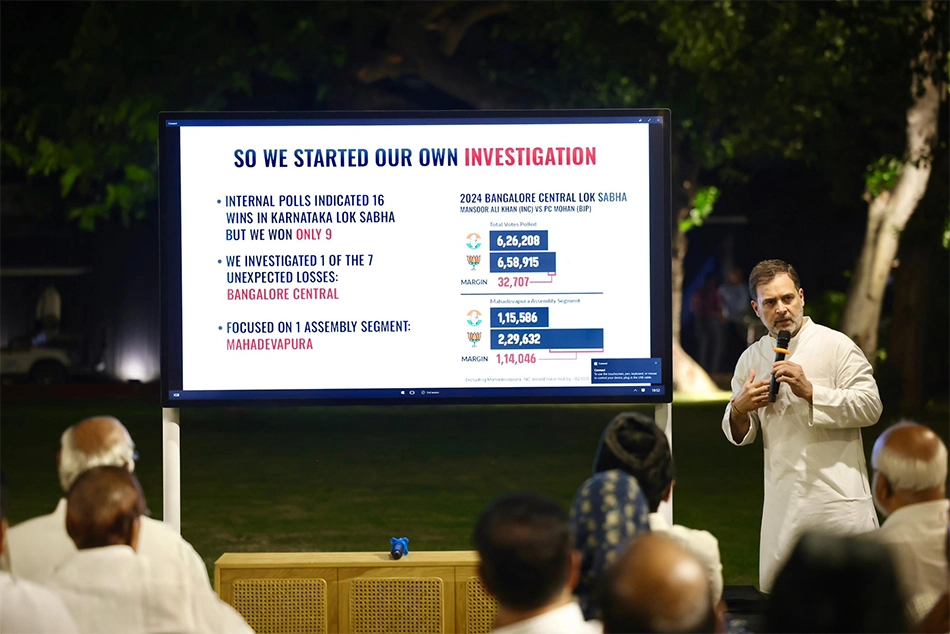
The Press Conference That Shifted The Debate
For years, political claims about electoral malpractice have often been dismissed as hollow rhetoric. However, Rahul Gandhi’s recent press conference appears to be different. Initially, his statements sounded like just another political allegation, but as time passed, the details emerged and began to resonate. The core question remains: If his claims are true, is Indian democracy in real danger?
Unlike vague accusations in the past, this time Rahul Gandhi presented data-backed evidence on how voter lists are being manipulated—not just through EVM-related doubts, but more significantly through intimidation, suppression, and mass deletion or addition of voters. He suggested that the focus of the opposition should shift from EVM hacking claims to voter list manipulation, as the latter can decisively swing election outcomes.
Core Allegations
In his presentation, Rahul Gandhi revealed startling figures from the Mahadevpura Assembly constituency in Bangalore Central. Out of 6–7 lakh registered voters, over 1 lakh were allegedly fraudulent. His team of 40–50 researchers studied heaps of printed electoral data—since the Election Commission’s (ECI) soft copy was not OCR-readable—and found:
- 12,000 duplicate voters registered in multiple polling booths.
- 40,000 fake voters with no valid address or absurd entries (e.g., house number “0” or father’s name as random characters).
- 10,000+ bulk registrations where over 80 people were listed under one address.
- 4,132 voters with missing photos but valid voting rights.
- 33,000 cases where people aged 60–80 were mysteriously listed as new voters (Form 6 misuse).
According to Rahul Gandhi, similar fraud likely exists in constituencies across India. His analysis of just 25 constituencies, each with an average of 33,000 questionable votes, suggests these manipulations could have swung outcomes in the ruling party’s favour during the 2024 general elections.
ECI’s Role and Credibility Crisis
The press conference also raised the issue of why Election Commissioners like Arun Goel and Ashok Lavasa left mid-tenure—an unusual occurrence in ECI history. Gandhi’s allegations take on more weight when viewed alongside ECI’s reluctance to answer key questions:
- Why was there a sudden spike in voters after 5 pm on polling day?
- Why are CCTV footages from polling stations being destroyed or withheld?
- Why hasn’t there been an investigation into duplicate voters despite ECI’s earlier acknowledgment of the problem?
- Why is VVPAT counting resisted despite being a transparency measure?
Rather than directly countering Gandhi’s claims with facts, the Karnataka ECI challenged him to take an oath before making statements. However, they stopped short of declaring his data false, and their cited Rule 20 was irrelevant in this context.
Fact-Checking and Independent Confirmation
Fact-checking outlet AltNews investigated and confirmed many of Rahul Gandhi’s findings, including duplicate entries for the same voter in multiple constituencies. This independent verification intensifies doubts over the integrity of the electoral process. The Supreme Court has also stepped in, ordering Bihar’s EC to release the list of 65 lakh voters, bringing more instances of questionable deletions into the public eye.
A Wider Political Consensus on Electoral Fraud
Interestingly, concerns about voter list manipulation cut across party lines:
- Akhilesh Yadav has called the ECI a “dead body” institution.
- Former Delhi CM Atishi alleged that BJP is adding names to Delhi’s voter lists illegally.
- BJP leaders in Bengal have claimed there are over 1 crore “Bangladeshi” voters in the state.
Regardless of the political angle or affiliations, the message is clear—there’s a widespread belief in electoral roll tampering, and it has the potential to alter democratic outcomes.
Opposition’s Strategic Missteps
While Rahul Gandhi may have struck the right chord this time, the Congress and INDIA bloc face criticism for their delayed focus. Voter lists are made available to parties before elections—yet Congress did not conduct this deep-dive earlier. In Karnataka, where Congress is in power, it could have scrutinised the state’s electoral rolls sooner.
The earlier obsession with EVM hacking, without concrete proof, has weakened the opposition’s credibility. A shift toward exposing voter roll manipulation is a more evidence-based and potentially impactful approach.
Legal or Political Path Forward?
Rahul Gandhi hasn’t confirmed whether Congress will take the matter to court, possibly due to concerns over political pushback. But experts suggest that legal intervention, backed by comprehensive data, could force ECI accountability. The steps ahead could include:
- Demanding electronic voter data and CCTV footage from polling stations.
- Coordinating all opposition and regional parties to audit voter lists in their constituencies.
- Public campaigns demanding transparent electoral rolls and strict verification processes.
The Bigger Question: Is Democracy in Danger?
If voter lists can be manipulated so extensively—through fraudulent additions and deletions—India’s electoral process risks losing public trust. The ECI’s defensive, vague responses only deepen the suspicion. The irony is that while the Constitution envisions the ECI as an independent guardian of democracy, its perceived alignment with ruling party interests has raised alarm bells across the political spectrum. If left unchecked, this pattern could normalise electoral fraud and make fair elections the exception rather than the rule.
The Final Words
Rahul Gandhi’s press conference may prove to be a turning point—if the opposition follows through. The issue of voter roll manipulation is far more concrete than EVM hacking allegations and offers a chance to expose structural weaknesses in India’s electoral system. Whether the INDIA bloc unites around this cause, or whether the matter fades into political noise, will determine if this moment strengthens Indian democracy or marks another missed opportunity to protect it.
[The writer, Mohd Ziyauallah Khan, is a Freelance Content Writer & Editor based in Nagpur. He is also an Activist and Social Entrepreneur, co-founder of the group TruthScape, a team of Digital Activists fighting disinformation on social media.]
Follow ummid.com WhatsApp Channel for all the latest updates.
Select Language to Translate in Urdu, Hindi, Marathi or Arabic
